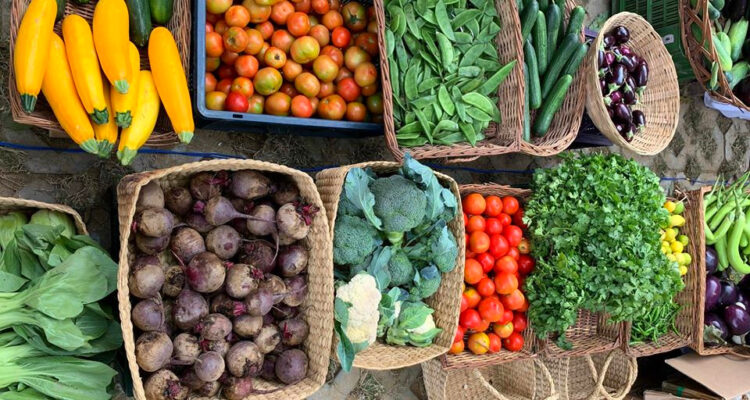◊ By Shivranjani Gupta
Visit ORGANIC SHOP by Pure & Eco India
The world is witnessing a healthy food revolution and has slowly come to realise that good food is the best medicine.
Individuals now consciously check food labels and pay close attention to the nature of their food from provenance to purchase. This desire to choose healthier alternatives has led to the rising popularity of organic foods.
As per statistics, global organic foods sales are expected to reach $849.7 billion by 2028. However, a question that continues to persist is: Is organic really healthier? To understand this, it is important to know what organic actually means.
WHAT DOES THE ‘ORGANIC’ LABEL MEAN?
There are certain rules of production for foods to qualify as ‘organic’. According to the U.S. Department of Agriculture, agricultural products such as fruits, vegetables, grains, dairy, and meat need to be grown without synthetic pesticides, herbicides, or fertilisers for three years before harvest to be considered organic. Organically raised animals need to be given organic feed and kept away from growth hormones and antibiotics. Any food labelled as “USDA Organic” should have at least 95% of organic ingredients.
SO, IS ORGANIC HEALTHIER?
What you eat has significant impact on your health. Several research papers reveal that dietary habits impact your disease risk. As food nourishes and protects your body, it is important to eat right.
WHY ORGANIC FOODS ARE HEALTHIER
- Organic Foods are Statistically Healthier
Several nutritionists and experts recommend organic foods as they believe them to be richer in vitamins, minerals and antioxidants as compared to their conventional counterparts. Several statistics have revealed that:
- Organic fruits and vegetables have 20% to 40% more antioxidants when compared to conventional fruits and vegetables.
- Organic crops are 48% less likely to test positive for cadmium, a toxic metal that accumulates in the kidneys and liver.
- Organic meat and milk can have as much as 50% more omega-3 fatty acids.
In addition to the aforementioned, organic foods are free from artificial colours, flavours or preservatives which are responsible for several health problems.
- Organic Foods are Free from Pesticides
Synthetic pesticides are toxic to human health and can lead to adverse health effects such as cancer, effects on reproduction, or the immune or nervous systems. Some studies reveal that pesticide residue is five times more likely to be found in conventionally produced crops. Therefore, switching to organic foods is perhaps the best way to reduce chemical intake as the use of synthetic fertilisers and pesticides or insecticides is banned in production of organic food. Even the pesticides that may be used in certain organic farming practices are natural and chemical-free.
- Organic Foods are Free from GMOs
GMOs are short for Genetically Modified Organisms. In conventional farming, GMOs are often used to improve growth, enhance the nutritional content of the agricultural produce, for pest resistance, and to facilitate ease of farming.
However, while GMOs make farming easier, there are concerns about their impact on human health, particularly concerning certain illnesses and allergies that may occur in the long term from consumption of GM foods. On the other hand, GMOs are prohibited from being used in organic foods.
There is a growing body of evidence suggesting the potential health benefits of organic foods over their conventional counterparts. Acknowledging this, the organic food store by Conscious Food aims to keep people and the earth healthy with their wholesome range of organic food offerings.
The author is Chief Marketing Officer, Conscious Food



Leave a Reply